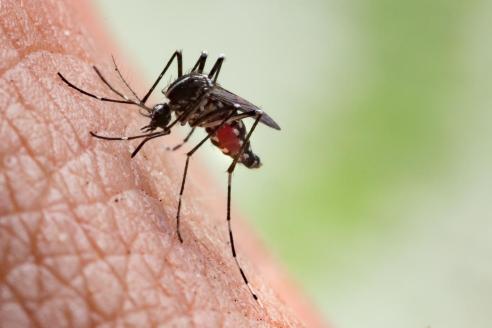City Continues Mosquito Control Program
August 29, 2024
City staff and their consultants continue to monitor the seasonal occurrence of Eastern Equine Encephalitis (EEE) and other mosquito-borne diseases reported by the NH Department of Health and Human Services (NHDHHS).
The City’s annual mosquito control program, active since April, includes larval monitoring and the application of larvicide in identified risk areas, such as wetlands and salt marshes. At this point, the City’s consultant Dragon Mosquito Control, Inc. is not recommending any other treatment, such as spraying for adult mosquitoes. They indicate that larvicidal control is the most effective means of controlling mosquitoes.
No disease has been found in mosquitoes trapped in Portsmouth or any abutting towns to date. Mosquito trapping throughout Portsmouth and disease testing at the State Lab in Concord continues until mid-October. The threat of mosquitoes carrying disease is only reduced by a hard freeze or snow on the ground when mosquitoes hibernate or freeze.
EEE is transmitted through the bite of an infected mosquito that has picked up the virus by feeding on an infected bird. While the risk of contracting the infection is low, it is a very serious disease. Infection usually occurs within 4 to 10 days after being bitten by an infected mosquito and is manifested in symptoms including fever, headache, vomiting, diarrhea, and seizures. Anyone exhibiting these symptoms should be hospitalized immediately. There are no human vaccines to prevent EEE and treatment consists of supportive care. People with compromised immune systems should take extra precautions. Statistics show that EEE is fatal for 30 percent of people who are infected.
The best way to prevent infection from EEE and other mosquito-borne illnesses such as Jamestown Canyon Virus and West Nile Virus is to prevent mosquito bites. Stay vigilant when you are outside. Protect yourself by using an EPA approved mosquito repellent, avoid exposure at dusk and dawn when mosquitoes are most active, cover exposed skin with long pants and long sleeves. More information on choosing a repellent and using repellents safely is available on the EPA’s website at epa.gov/insect-repellents. Remove standing water where mosquitoes breed such as wheelbarrows, buckets, trash barrels, tarps, boats, canoes, and other containers. Check that screens on windows and doors fit tightly and have no holes that would allow mosquitoes to enter the building.
Horses are very susceptible to EEE and should be up to date with their annual EEE and West Nile Virus vaccinations including a booster. The vaccine has also been used successfully in alpacas and llamas. Humans cannot contract EEE from horses; they contract EEE only through the bite of an infected mosquito.

